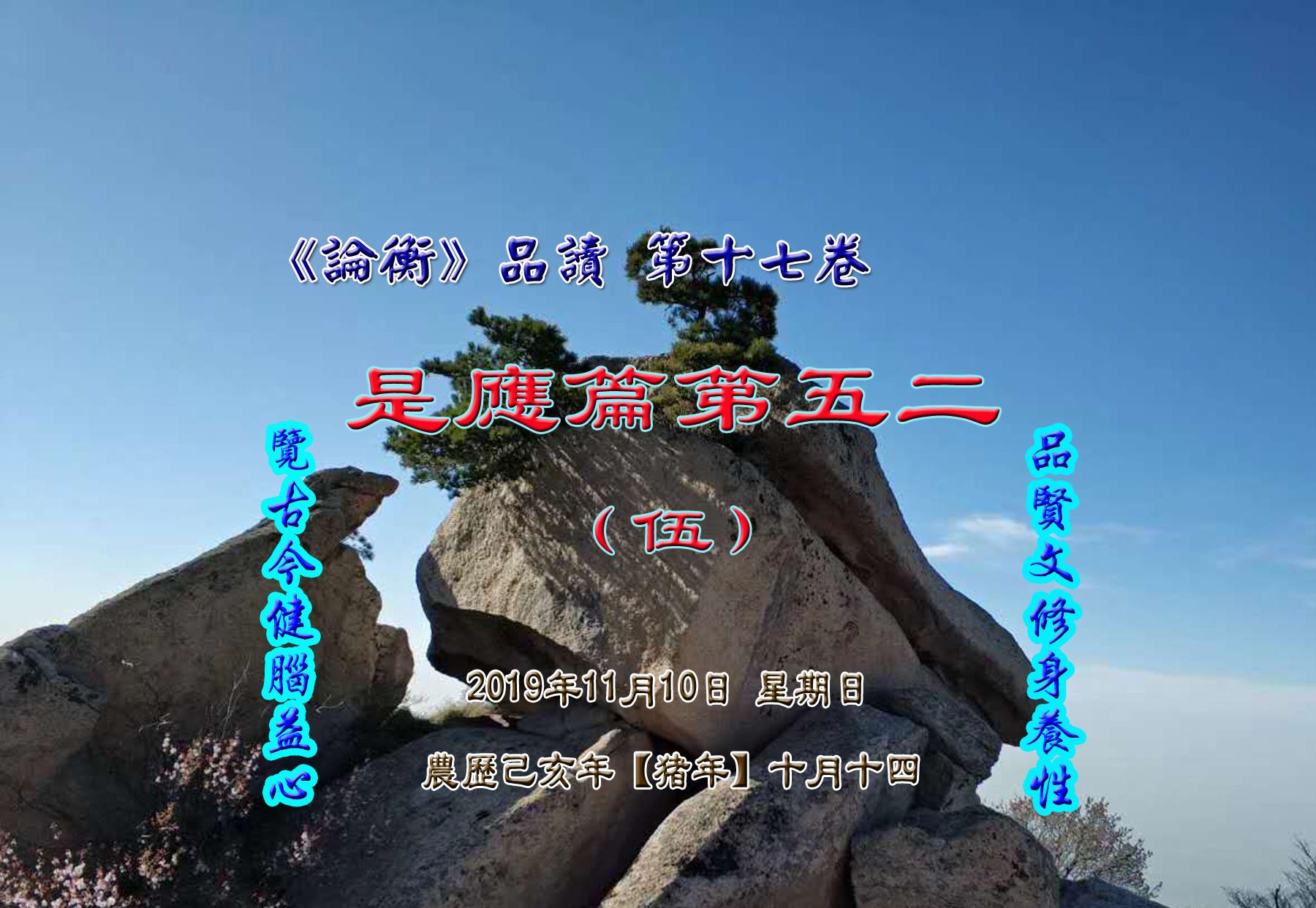
The Confucians also said: At the time of the Taiping, Qu Yi was born at the end of the court, and if the grass was like a grass, the lord referred to the Yu people, and the Yu people entered the dynasty, and qu Yi Ting pointed to it at the end, and the holy king knew where the Yu people were. Fu Tian can give birth to this thing to refer to the Yu people, so that the Holy King does not know it; or if the Yu people are not born, they will regenerate a thing to indicate it, and He Tianzhi is not bothered! The Holy King is no better than Yao, Shun, Yao, Shun's rule, the most peaceful, that is, Qu Yi has been born at the end of the court, and the Yu people come to refer to it, then why is it difficult for Shun to know the Yu people, and make Gao Tao Chen know the art of the people? The scripture says: "If you know people, you will be philosophical, but the emperor will be difficult." "Man contains the five constants, the sound and breath are communicative, and they still cannot know each other." Qu Yicao also, An can know Yu? As the Confucians say, then when the peace is over, the grass and trees surpass the sages.
The Confucians also said: At the time of the Taiping, Qu Yi grew under the steps of the temple, shaped like grass, mainly to point out the Yu people, and when the Yu people entered the dynasty, Qu Yi could point them out under the steps of the temple, and the Holy King knew where the Yu people were. Heaven can deliberately grow this thing to indicate the Yu people, but does not allow the Holy King to be able to identify the Yu people by his own nature; or the Yu people cannot be born, they must regenerate a thing to point out the Yu people, and the heavens are not afraid of trouble! Among the holy kings, there was no more than Yao, Shun, Yao, Shun ruled the world, the most peaceful, if Qu Yi had grown up under the steps of the temple, yu people could immediately point out when they arrived, then why was it difficult for Shun to identify the Yu people, and let Gao Tao state the art of knowing people? The scriptures say: "Those who know people are wise, but Emperor Shun is still difficult to do." "Everyone contains the breath of the five constants, and the breath of speech is interconnected, and they cannot understand each other yet. Qu Yi is just a kind of grass, how can you identify Yu Ren? If the words of the Confucians are true, then at the time of the Taiping, the wisdom of the grass and trees is greater than that of the sages.
"When a person enters the dynasty, Qu Yiting ends with a finger", it is magical, but all the people have a strange body odor, and can they cause Qu Yicao to turn to him? It is obviously inventing an outrageous magic. However, it seems that there are not many believers in this Confucian statement, including the emperors of previous dynasties, and most of them still rely on their own and the examination of the nengchen of the dynasty. If I think about it roughly, I found that the Confucian Sutra and the Way of Divination often use non-human things to say things, such as benevolent animals and beasts, spiritual experiences of grass and trees, etc., and can always make some mysterious and rare things that are rare to people, and talk about all things that should be done with the world. Why can't we speak directly about good and evil things in the world? Confucians, assurers, perhaps the most sleek people in the world, know that if they speak out, they may lead to unintended consequences, so they use the skill of borrowing things to say things, and if someone investigates deeply, a sentence of "heavenly opportunity cannot be leaked" can both prevaricate and make people feel unfathomable. Or the ancients only borrowed things to metaphorical things, occasionally left a piece of language, and through the addition of branches and leaves by later Generations of Confucians and Occupiers, the original fables evolved into the words of Confucian sages and the sutras of fortune tellers. The formation of the false legend is after a long historical rendering, and today everyone reads it, rather than worrying too much about its truth and falsehood, it is better to appreciate the wonderful story and understand the profound meaning of it.
Wang Chong (27–97 AD), courtesy name Zhongren, was a thinker and materialist of the Eastern Han Dynasty.
"On Balance" consists of thirty volumes and eighty-five articles, of which only one article remains, and eighty-four actually exist, which is an important materialist work of the Eastern Han Dynasty thinker Wang Chong, showing a certain materialist thought, but also containing some heavy "life" ideas. The emergence of "On Balance" cannot be ignored in the process of the development of Chinese history and culture. Due to the era in which the author lived, his worldview had certain limitations, but it did not affect the historical importance of his work.
Taking its essence and removing its dross is a scientific attitude toward studying and treating historical classics and ideological culture. Chinese culture is broad and profound, and all the sons and hundreds of families have their own strengths. Read the classics of Traditional Chinese Studies and draw useful nutrients from them.